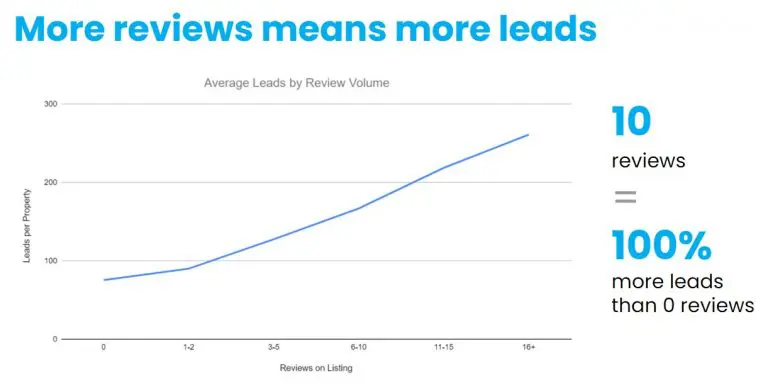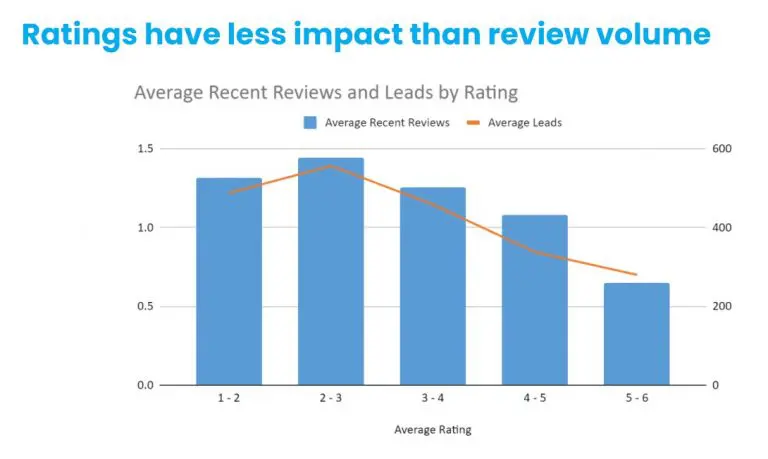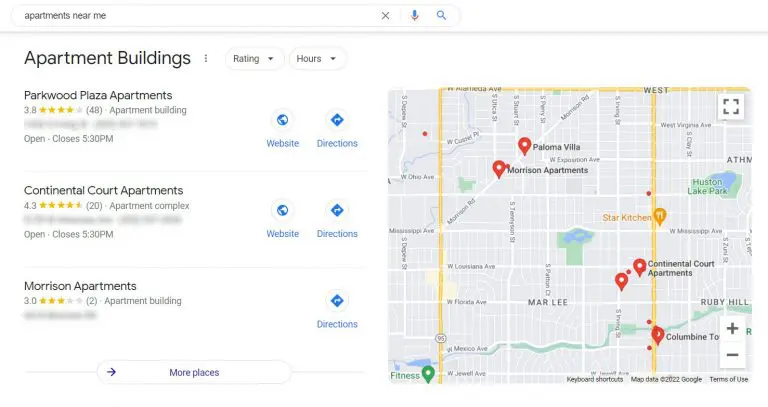Search is the first step of the apartment-finding journey for renters. Your property’s presence on search engines, like Google, secures your position along that journey toward a signed lease. From a renter’s perspective, being visible in search results, or having strong SEO (search engine optimization), gets you in the game. Then, ratings and reviews help you to build credibility and trust with renters as they begin comparing results. So prioritizing both your SEO and reputation strategy is critical to your marketing success. The good news is that a strong online reputation improves your SEO. Two birds, one stone!
“Each review is like a micro-blog. If a business is getting a lot of reviews, Google takes that into consideration when providing search results. If you want to be optimized for search (aka SEO), then reviews and listings are extremely important, and should really be your main focus,” says Greg Waggoner, Sr. Product Manager for Reputation and Social Media Management Solutions at Rent.
We’ll cover why SEO is critical for properties and how they can maximize online reputation to stand out to renters from the moment they enter that first search query.
Get more new reviews to rank higher and generate leads for your property
Rent. renter research consistently shows that search is second nature to in-market renters. The vast majority of renters (87%) start apartment hunting by searching on a search engine.1 While looking at properties, they also want to hear directly from other renters. Eighty-four percent of renters say that ratings and reviews influence their decision to sign a lease.2
While renter accounts of how they search are a powerful indicator, performance data also shows that reviews directly influence the number of leads generated for a property. In our research, we’ve found two key catalysts for generating leads from reviews: the quantity of reviews that a property has and the recency of those reviews.
A high number of reviews on a listing signals to prospective renters not only that the property is popular, but that there’s a high level of resident engagement with the community. Listings with 10 reviews generate 2X more (100% more) leads per property than listings that don’t have any reviews.3

But renters also want to see consistency over time and that resident engagement is still high at your property today. We see double results from recency, or reviews that are less than three months old. Properties that have 10 recent reviews generate 4X more leads per property than those with zero recent reviews.3
So where do ratings and review sentiment (negative, positive, neutral) fit into this? The results may surprise you. Review recency has been found to be more important than rating in generating renter leads. In fact, our data showed that properties around 2.2 stars on average generated the highest amount of leads.3 This may sound incredibly counterintuitive, but data shows the driving factor for lead generation is not necessarily a property’s star rating, but the sheer number of reviews, the recency of reviews and how a property responds to negative feedback.

Locations that have recent responses to reviews generated up to 31% more leads from their listings.3 What this means for properties is that renters don’t expect your property to have a perfect rating, but they do expect thoughtful responses to reviews that show you are listening and committed to improving.
The Google Local Pack – What your property can aim for in SEO

Searchers will first see Google’s “Local Pack” with the top 3 results on based off profile completeness.
When a renter makes a local search query on Google, like “Apartments near me,” Google Local Pack shows at the top of the search results page. This is prime digital real estate for properties looking to drive awareness and actions from prospective renters. Showcasing the top 3 results, the Local Pack serves renters with all information needed to conveniently visit each property. If your property is in the Local Pack, the results will feature a map showing your property’s location, the address, hours of operation, and the average star rating from renter reviews. For renters on mobile devices, there will also be a tap-to-call feature.
How to get your property into the top three
Search engines want users to have instant access to high quality, recent, and accurate content. Consistent review and listing management are the top two ways that properties can influence their Google Local Pack rankings to reach renters who are searching nearby.
In addition to reviews, Google takes into account how relevant your property is to the renter’s search by analyzing the completeness of your Google Business Profile. Taking a few moments to ensure your Google Business Profile is complete in all areas can yield major results. In a recent test, we found that properties that have all fields populated on their listings increased impressions by 67% and saw an overwhelming increase in actions of 112% percent.
Another simple way to step up your SEO is by consistently representing your property’s contact information in all instances where it appears across the web—from your Google Business Profile to social media profiles and marketplace listings. Consistency in NAP (Name, Address and Phone Number) across business listings has been found to be the fifth most important ranking factor for local search.
Though the full acronym is not so simple, NAPWCHD takes it a bit deeper and can guide you through tightening up key information on your property listings:
- Name
- Address
- Phone Number
- Website
- Categories
- Hours
- Description
Things to remember
SEO is a key part of your overall property marketing imprint on the web and goes hand in hand with reputation. High rankings often indicate how complete listing content is and the quality of information provided. Similarly, great reputation comes down to how well properties encourage new feedback and respond to ratings. By clearly, consistently and comprehensively offering the information renters are looking for—your property can gain better visibility and more renter leads.
With solutions to optimize listings, monitor ratings and respond to reviews with expert-level insight, Rent. improves visibility for properties.
¹ Rent. Renter Survey 2021.
² 2022 NMHC/Grace Hill Renter Preferences Survey Report.
³ Rent. Internal Data. July, 2021.









